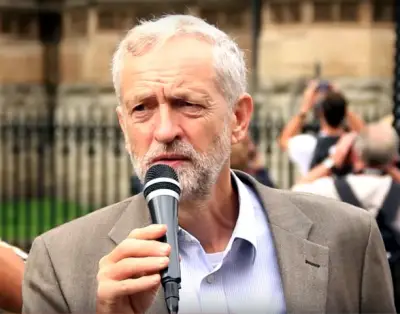The fallout for the Labour leadership after the Party’s recent election defeat in Copeland continued to spiral out of control last week, after top scientist Stephen Hawking, a long-time Labour voter, became the latest high-profile voice to call for Corbyn’s resignation.
In what seems to be a growing sentiment amongst those sympathetic to the left, the Cambridge professor expressed that, whilst he shares many of the Labour leader’s political views, he thought his leadership a ‘disaster’ for the Party which would cost Labour the next election.
Hawking’s comments follow a YouGov poll last Sunday which revealed that Corbyn’s approval rating as leader amongst Labour members has dropped 18 points from 72% to 54%. What’s more, 50% of those Labour members believed that Corbyn should stand down before the next election, with less than half, 43%, opposed.
So what is happening within the left of the Party and the membership which has supported Corbyn thus far? Have Corbyn’s supporters been suddenly visited by the ghost of Labour’s future? And what does this mean for the political direction of the Party – if Corbyn’s decline is inevitable, will this also spell the end of the Party’s left wing for a generation?
The first question is more easily answered. As much of the fierce criticism towards the leadership from within the Party has diminished, so too has the credibility of the leadership blaming poor poll ratings on Party disunity. Even after a prolonged ceasefire of hostilities within the Party, the polls are still refusing to budge, something which has been painfully recognised by both left-wing activists such as Owen Jones, a prominent supporter of Corbyn’s initial leadership bid, and large sections of the wider membership.
The second question is more difficult to answer, as it will depend on whether or not Corbyn will be able to come to an agreement with his Party to put a suitable left-wing successor on the ballot paper. Although inexperienced, there is, in the view of the leadership, plenty of young emerging talent to pick from: Clive Lewis, Rebecca Long-Bailey, and Angela Rayner having been the most prominent figures to come to the fore. Corbyn’s key allies in Momentum have been keen to amplify the voices of these younger figures in recent months.
Ultimately, Labour’s future will hinge upon which faction, and which personality, can present an inspiring vision that will resonate with an increasingly downbeat membership. In 2015, despite being a 67-year-old backbencher with little experience of politics or media relations, Corbyn ran a leadership campaign which overshadowed the lacklustre offers of his opponents, breaking with established convention and bringing in thousands of new members.
When Corbyn’s popularity amongst Labour members begins to unravel, Labour’s future will once again hang in the balance. To beat a possible left-wing successor, centrist candidates will have to radically rethink their offer to the Labour membership and the wider electorate, to offer policy solutions which resonate with a new, post-financial crisis and post-Brexit, age. Until there is a centrist figure who can articulate such policy positions, and connect as emotionally with Labour members as Corbyn was clearly able to, a left-wing successor to Corbyn’s leadership looks a likely course for Labour’s future.




